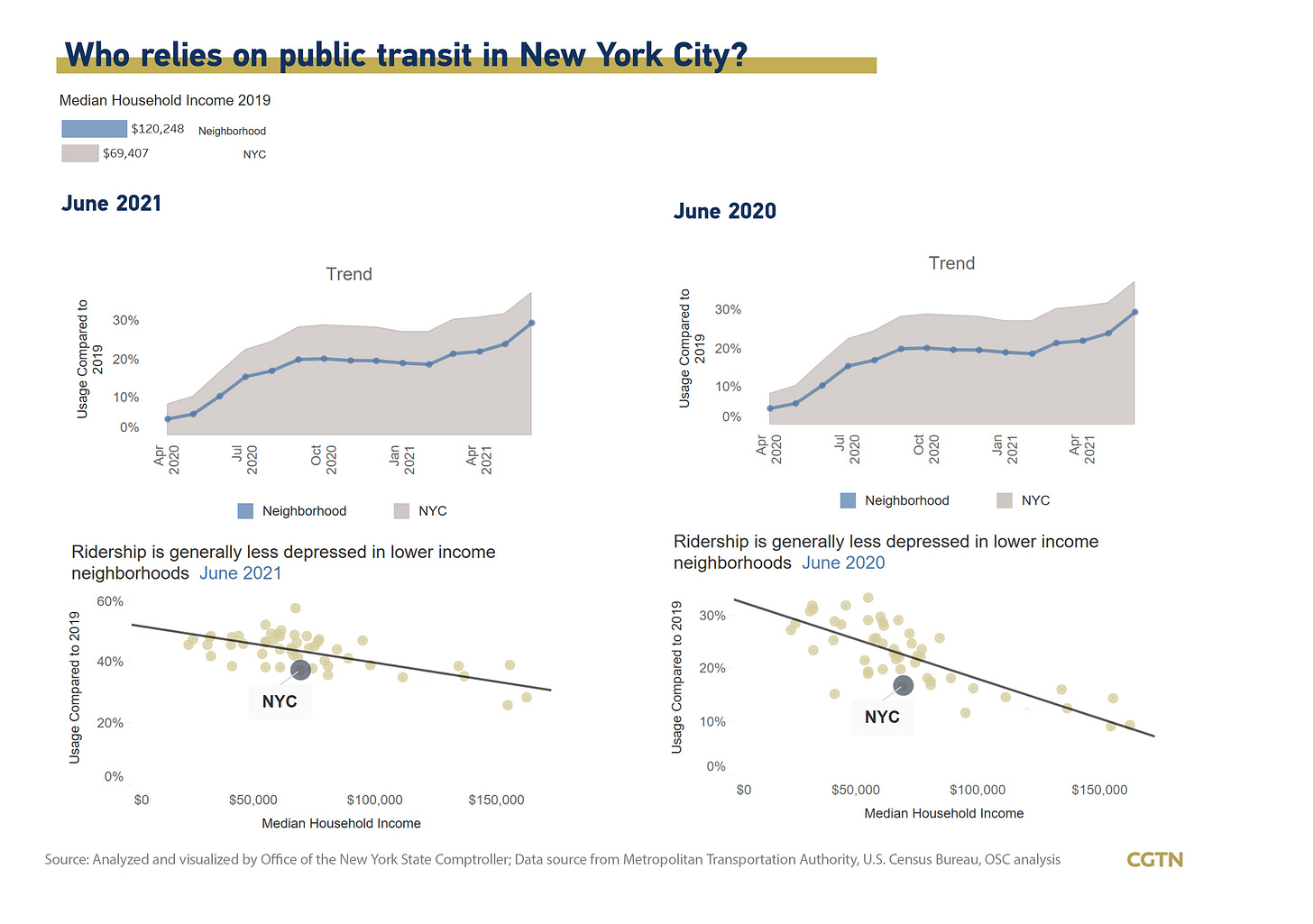Mobility Matters Daily #108 - Wembley, Auckland, Saudi Arabia, and Lamu
Plus a brilliant paper on the perception of risk on shared mobility services during COVID-19
Dear friend,
Well, yesterday didn’t go according to plan. Even though the result didn’t go the way that I wanted, just being at a major final was an amazing experience. I am, of course, talking about the efficient operation of getting 60,000 fans to and from a major sporting event - despite many being disgruntled afterwards. If only England were as good at penalties as Transport for London were at getting people home.
James
Auckland publishes its plans for city centre buses
Speaking of efficient public transport, that is what Auckland is hoping to achieve through its City Centre Bus Plan, which was published recently. A big part of the plans of the city is to route buses through the city centre as opposed to terminating in the city centre, facilitated by two dedicated East-West corridors. The plan states that this has an obvious benefit of freeing up a kilometre of kerb to put to other uses, as buses are not dwelling at the stops.
I agree that this is the sort of thing that cities should be looking at more. City streets should not act as defacto bus depots - I’m looking at you, Oxford Street in London. Plus running through services improves the overall accessibility of the city by avoiding the interchange penalty. However, this needs balancing against the main driver of bus user dissatisfaction - reliability. Longer routes through congested areas are more likely to suffer delay, which makes them less attractive. At least Auckland is tackling this conventional wisdom of how to run buses, though.

Saudi Arabia has also been working on its own transport strategy
It seems to have been a week of transport strategy work, as the government in Saudia Arabia has launched its own National Transport Strategy. Why I find this strategy is not because of its significant focus on passenger transport (not that it ignores it, by the way) but because on its focus on improving connectivity to make the Kingdom a global logistics hub. This includes, among other things, creating a new airline and expanding regional airports.
Strategies are reflective of the context in which the strategy is made. This strategy is within the context of incredibly low petrol and diesel prices in the country, and a country that, as its previous strategy states, is fast transitioning from a developing nation into a developed nation, with the associated growing pains of on economic inequality, land use and transport integration, and integrating freight. Furthermore, the Middle East generally is emerging as a global logistics hub, specifically for air freight.
Lamu got a better boat for accessing justice
When you are an island settlement getting access to services has a unique challenge to it - how do you get across the water? In Lamu, which has a justice system of mobile courts (a brilliant example of taking services to people), which is not unique in the world, this proved a logistical challenge to bringing justice services to people. So what the Office of the Director of Public Prosecutions did was simple - buy a boat.
The best part of this is that rather than taking people to the service, this takes the service to the people. The obvious benefit of this is that there is it being easier for victims to get access to the trial, but there is an additional benefit in terms of visibility. In many areas of the world, justice feels remote because it is remote, and so for communities where criminal activity takes place, having direct access to a court is of significant support to them.

Stat of the Day
This great chart that i found on CGTN based on some Pew Research shows something amazing. It shows that ridership on public transit in New York is generally higher post-COVID in lower income neighbourhoods than in higher income neighbourhoods. Yet in terms of planned funding through the Infrastructure Bill in the US, public transit is getting less than a quarter of the total funding. Doesn’t that make you think.
Sources: CGTN | Pew Research | The White House
If you do nothing else today, do this
Read this excellent paper on the perceived risk of using shared mobility services during the COVID-19 pandemic by Ehsan Rahimia, Ramin Shabanpourab, Ali Shamshiripoura, and Abolfazl Mohammadiana. Data, not conjecture.



